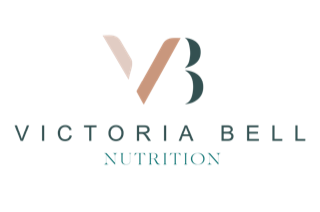Gut Healing Foods
More and more, we are starting to hear the countless ways in which gut health is linked to your overall health. No doubt you’ve heard the phrase “you are what you eat” but the health of your gut determines how what you need from your food gets where it needs to go. Your gut also has a part in keeping everything in balance, including:
Hormones
Neurotransmitters (brain chemical messengers)
Moods, memory, concentration and alertness
Metabolic, physical mental energy
Immunity
Skin, bone, muscle, joint and eye health
Detoxification
Why the gut has such a big effect on your health:
The lining that reaches from inside your mouth down to the other end, is considered to interact with the external environment. Everything that passes through comes from outside of your body, and it is only when those external contents cross through the lining that they have technically become internal within your body. This includes food, chemicals in your food but also microbes such as viruses, bacteria and parasites.
The epithelium which lines your intestines has microscopic little gaps called tight junctions between the cells. These junctions are meant to remain “tight”, but they loosen a little to let digested food particles through. Friendly bacteria help to provide protection, stopping harmful microbes from getting through and helping control the tight junctions.
The tight junctions can become too loose or leaky for a number of reasons. As they start to let bigger food particles and microbes through, these can start to reach the blood stream and your immune system can start to respond to these unwelcome objects by starting a cascade of inflammation.
Your liver has the job of detoxifying normal products of digestion and anything else that has made it into the blood stream. If it is overloaded, it will start to pump some of the toxins out to the skin to be excreted through the glands. This can result in symptoms such as skin complaints, headaches, body aches, fatigue and brain fog.
How do you heal the gut?
If you are experiencing any number of symptoms of malaise, your gut may benefit from some support. Working with a nutritional therapist can help to identify some of the causes of any compromise to the integrity of your gut. Consulting with your GP is important, and standard or private tests are sometimes helpful.
Incorporating some healing foods is a great place to start in your quest for better health. If you are on any medications, always consult with a doctor before drastically changing your diet.
My Top 10 Gut Healing Foods:
1. Turmeric: The anti-inflammatory compound, curcumin is great for your gut and is available as a supplement. But using the whole food as a root or the powder will ensure that you benefit from the synergistic effect of all the powerful active compounds together. Add liberally to food such as curries, stews, shakes, scrambled egg, or try a golden milk or turmeric latte.
2. Onions: These can get the blame for gas if your microbiome is out of balance, but they are full of mucopolysaccharides – carbohydrates which feed your good gut bacteria and soothe your gut lining. They are also packed with antioxidants and help to kill harmful microbes.
3. Oats: Full of nutrients and like onions, they are also rich in mucopolysaccharides and betaglucans which support immunity.
4. Bone broth: For centuries this food has been consumed for it’s gut-friendly effects. Gelatin, collagen, proline, chondroitin and glycine, all released from bones support our own collagen production as well as providing the building blocks to repair joints and our gut lining. You can slow cook bones left over from your Sunday roast with some water, herbs and vegetables, or buy ready to eat bone broth.
5. Cruciferous vegetables: These are rich in phytonutrients such as glucosinolates, which support liver detoxification. This allows more toxins to be safely excreted, rather than them being recirculated via your bowels. The less toxins circulating in your system, the better you will feel. Include plenty of rocket, pak choi, broccoli, Brussels sprouts, cabbage, cauliflower, horseradish, kale, radishes, spring greens, swede, turnips, watercress and wasabi. Eat cooked rather than raw if there is any concern about your thyroid.
6. Aloe vera juice: Full of antioxidants and known to soothe acid reflux, ulcers and relieve constipation. Go for a good quality product from the whole leaf, organic if the budget allows.
7. Slippery elm food: Rich in antioxidants, mucopolysaccharides and tannins which bind to damaged tissue and have a protective effect. Consume as a drink or eat like porridge, you can find this online or in health food stores.
8. Wheatgrass: High in nutrients, digestive enzymes and alkalising, wheatgrass is great for supporting digestion and healing inflammation. Add the powder to smoothies, fresh juices, hot drinks, porridge, salad dressings or homemade ice cream!
9. Coconut butter: As well as coconut oil, coconut butter contains coconut flesh which is used to make coconut flour and it’s full of fibre. The coconut fibre helps to feed a healthy microbiome, while the oil is anti-inflammatory. Use as an ingredient in healthy bakes, or you can melt and spread it like butter.
10. Grass fed ghee: This clarified butter has had all the lactose, casein and whey removed and is rich in Omega 3 essential fats, vitamins A, D E and K2 and is anti-inflammatory. Use to cook with, add to tea or coffee, or melt on top of vegetables. There are plenty of other healing foods to try, including ginger, garlic, artichokes, fermented foods, apple cider vinegar, pumpkin seeds and coconut oil.
The good news is that you don’t need to try everything at once. Start slowly, adding in a food at a time to fit in with your routine and take some time to test different foods out to see what works for you.
If you would like to find out more about how nutritional therapy can help with your gut health, contact me at info@victoriabellnutrition.co.uk.


